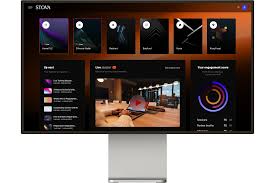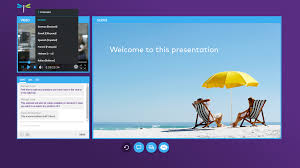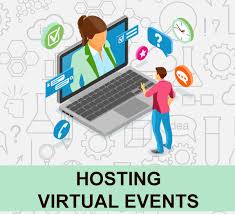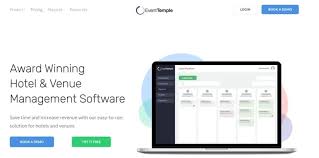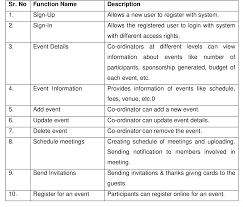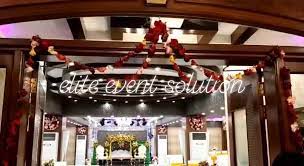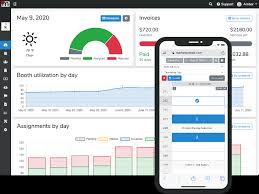The Rise of Hybrid Event Management Platforms
Hybrid events, which combine in-person and virtual elements, have become increasingly popular in recent years. With the shift towards digital experiences, event organizers are turning to hybrid event management platforms to seamlessly integrate both physical and online components.
These platforms offer a range of features to streamline the planning and execution of hybrid events. From registration and ticketing to live streaming and virtual networking, event organizers can leverage these tools to create engaging and interactive experiences for attendees.
One key advantage of hybrid event management platforms is their ability to reach a wider audience. By offering both in-person and virtual attendance options, organizers can cater to diverse preferences and expand the reach of their events beyond geographical limitations.
Furthermore, these platforms provide valuable data analytics and insights that help organizers measure the success of their events. By tracking attendee engagement, feedback, and other metrics, organizers can continuously improve future events and enhance the overall attendee experience.
In conclusion, the rise of hybrid event management platforms reflects the evolving landscape of event planning in a digital age. As technology continues to advance, these platforms will play an integral role in creating innovative and inclusive event experiences for audiences around the world.
Maximizing Event Potential: 8 Key Advantages of Using a Hybrid Event Management Platform
- Seamless integration of in-person and virtual elements
- Expanded reach to a wider audience
- Increased attendee engagement through interactive features
- Efficient registration and ticketing processes
- Comprehensive data analytics for measuring event success
- Cost-effective solution for hosting hybrid events
- Flexibility to customize event experiences based on attendee preferences
- Opportunity for sponsors and exhibitors to reach both physical and virtual attendees
Five Challenges of Managing Hybrid Events: Integration, Technicalities, Costs, Security, and Seamless Experiences
- Complexity in integrating virtual and physical components
- Potential technical issues with live streaming and virtual interactions
- Higher costs associated with implementing hybrid event management platforms
- Security concerns related to managing both online and offline attendee data
- Difficulty in ensuring a seamless experience for both virtual and in-person attendees
Seamless integration of in-person and virtual elements
The seamless integration of in-person and virtual elements is a key advantage of hybrid event management platforms. By bridging the gap between physical and online experiences, these platforms offer event organizers the flexibility to cater to diverse attendee preferences and needs. This integration enables attendees to participate in events regardless of their location, ensuring a broader reach and increased engagement. Additionally, it allows for a more personalized and interactive experience for both in-person and virtual attendees, creating a cohesive event environment that enhances overall satisfaction and participation.
Expanded reach to a wider audience
One significant advantage of utilizing a hybrid event management platform is the ability to expand reach to a wider audience. By offering both in-person and virtual attendance options, event organizers can overcome geographical constraints and cater to diverse preferences. This expanded reach not only increases the overall attendance numbers but also allows events to connect with participants from different locations, ultimately enhancing the event’s impact and fostering a more inclusive and engaging experience for all attendees.
Increased attendee engagement through interactive features
Hybrid event management platforms offer a significant advantage in increased attendee engagement through interactive features. By incorporating tools such as live polling, Q&A sessions, virtual networking opportunities, and gamification elements, organizers can create dynamic and immersive experiences that captivate attendees both in-person and online. These interactive features not only encourage active participation but also foster meaningful connections among attendees, enhancing the overall event experience and ensuring a higher level of engagement that drives lasting impact and value for all participants.
Efficient registration and ticketing processes
One of the key advantages of utilizing a hybrid event management platform is the efficient registration and ticketing processes it offers. With these platforms, event organizers can streamline the registration process for both in-person and virtual attendees, making it easy for participants to sign up and secure their spots quickly. By automating ticketing procedures and offering online registration options, organizers can save time and resources while providing a seamless experience for attendees, ultimately enhancing the overall efficiency of event planning and management.
Comprehensive data analytics for measuring event success
One significant advantage of utilizing a hybrid event management platform is its provision of comprehensive data analytics for measuring the success of an event. By leveraging these analytics tools, organizers can gain valuable insights into attendee engagement, feedback, and other key metrics. This data empowers organizers to make informed decisions, identify areas for improvement, and enhance the overall attendee experience for future events. The ability to measure event success through data analytics sets hybrid event management platforms apart as invaluable tools for creating impactful and successful events.
Cost-effective solution for hosting hybrid events
A significant advantage of hybrid event management platforms is their cost-effectiveness in hosting hybrid events. By offering a combination of in-person and virtual components, these platforms allow organizers to reach a broader audience without the need for extensive travel or accommodation expenses. This flexibility not only reduces overall event costs but also opens up new revenue streams through virtual ticket sales and sponsorships. Additionally, the ability to repurpose content for online distribution further maximizes cost savings, making hybrid event management platforms a practical and budget-friendly solution for hosting successful hybrid events.
Flexibility to customize event experiences based on attendee preferences
One significant advantage of hybrid event management platforms is the flexibility they offer to customize event experiences based on attendee preferences. Organizers can tailor both the in-person and virtual components of the event to meet the specific needs and interests of their audience. By allowing attendees to choose their preferred mode of participation, whether it be in-person or online, organizers can create personalized experiences that enhance engagement and satisfaction. This customization capability not only improves attendee experience but also increases the overall success and impact of the event.
Opportunity for sponsors and exhibitors to reach both physical and virtual attendees
One significant advantage of hybrid event management platforms is the unique opportunity they offer sponsors and exhibitors to reach a wider audience by engaging both physical and virtual attendees. By providing a seamless integration of in-person and online components, these platforms enable sponsors and exhibitors to maximize their exposure and connect with attendees regardless of their attendance preference. This dual approach not only enhances brand visibility but also increases the potential for lead generation and networking opportunities, ultimately creating a more comprehensive and impactful experience for sponsors, exhibitors, and attendees alike.
Complexity in integrating virtual and physical components
One significant drawback of hybrid event management platforms is the complexity involved in integrating virtual and physical components seamlessly. Organizing hybrid events requires careful coordination between in-person and online elements, which can be challenging and time-consuming. From ensuring technical compatibility to managing different engagement strategies for virtual and physical attendees, the complexity of merging these two worlds can lead to logistical hurdles and potential disruptions during the event. This intricacy may require additional resources, expertise, and planning to overcome, making it a notable con for event organizers considering hybrid solutions.
Potential technical issues with live streaming and virtual interactions
One significant con of hybrid event management platforms is the potential for technical issues to arise during live streaming and virtual interactions. These challenges can range from poor internet connectivity and audio/video synchronization problems to platform crashes and compatibility issues with different devices. Such technical hiccups can disrupt the flow of the event, leading to frustration among attendees and impacting the overall experience. Organizers must invest in robust technical support and contingency plans to address these potential issues proactively and ensure a seamless hybrid event experience for all participants.
Higher costs associated with implementing hybrid event management platforms
One significant con of hybrid event management platforms is the higher costs associated with their implementation. Integrating both in-person and virtual elements requires specialized technology, equipment, and personnel to ensure a seamless experience for attendees. From setting up high-quality live streaming capabilities to providing technical support for virtual participants, the expenses involved in implementing and maintaining a hybrid event management platform can be substantial. Organizers must carefully weigh the cost-benefit analysis to determine if the added expenses align with their event goals and budget constraints.
Security concerns related to managing both online and offline attendee data
Security concerns related to managing both online and offline attendee data pose a significant con of hybrid event management platforms. With the integration of virtual and physical components, organizers face the challenge of safeguarding sensitive information such as personal details, payment data, and communication logs. The potential risks of data breaches, cyber attacks, and privacy violations are heightened in a hybrid event setting, requiring robust security measures to protect attendee information across multiple channels. Organizers must prioritize data encryption, secure transmission protocols, access control mechanisms, and compliance with data protection regulations to mitigate the security vulnerabilities inherent in managing hybrid event data.
Difficulty in ensuring a seamless experience for both virtual and in-person attendees
One significant challenge of hybrid event management platforms is the difficulty in ensuring a seamless experience for both virtual and in-person attendees. Coordinating technical aspects, such as live streaming, interactive features, and networking opportunities, to cater to two distinct audiences with varying needs and expectations can be complex. Ensuring that both virtual and in-person attendees feel equally engaged and connected throughout the event requires meticulous planning, coordination, and execution to overcome potential disparities in experience quality. Failure to address this con effectively may result in a disjointed event experience that could impact attendee satisfaction and overall event success.


